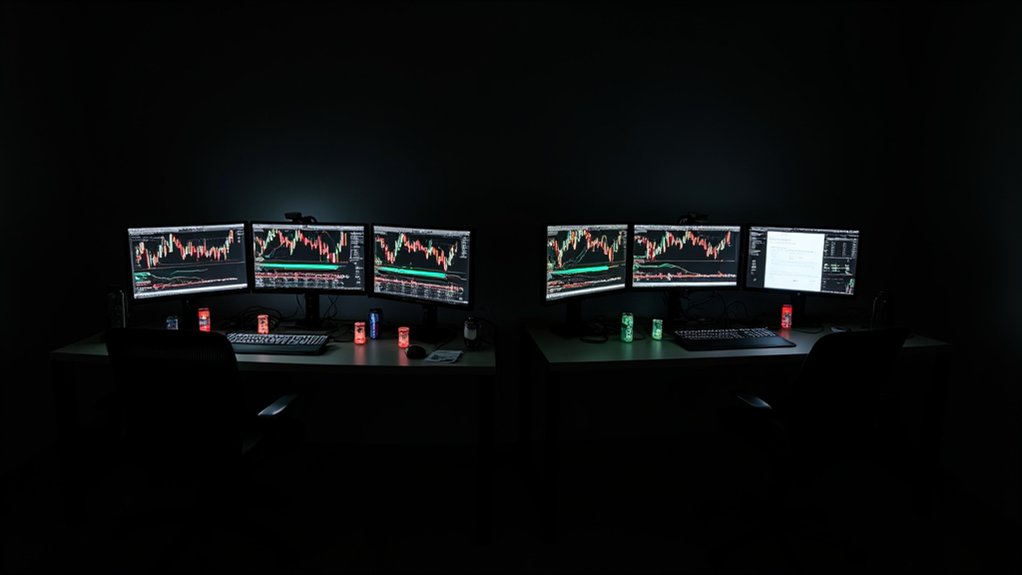Forex pair classifications organize currency pairs into three main categories based on their liquidity, trading volume, and the currencies involved.
Major pairs always include the US dollar paired with another currency from a large global economy, such as EUR/USD or USD/JPY. These pairs dominate the market with the tightest spreads and highest liquidity.
Major pairs feature the US dollar with top global currencies, delivering the market's tightest spreads and deepest liquidity.
Minor pairs, also called cross-currency pairs, combine two major currencies without the US dollar, like EUR/GBP or GBP/JPY. They offer moderate liquidity with slightly wider spreads.
Exotic pairs match a major currency with one from an emerging or smaller economy, such as USD/TRY or EUR/THB. These carry the widest spreads, lowest liquidity, and highest volatility.
Understanding these classifications helps traders assess risk levels, choose appropriate trading strategies, and anticipate typical price behaviors for different pairs. All forex trading involves exchanging one currency for another in the foreign exchange market, regardless of the pair classification. New traders should familiarize themselves with fundamental concepts and strategies before selecting which currency pairs to trade.
In short: Forex pairs are classified as majors (USD-based with high liquidity), minors (non-USD crosses), or exotics (emerging market currencies with higher risk).
Example in Action
If you want to see the difference between a major, minor, and exotic pair using an African example, compare EUR/USD to USD/ZAR.
EUR/USD might have a spread of just 1 pip and move 70 pips in a day with high liquidity, while USD/ZAR (an exotic pair) could have a spread of 50–100 pips and swing 200+ pips daily due to lower liquidity and sensitivity to South African economic events.
This means your trading costs are dramatically higher with USD/ZAR, but the volatility also creates larger potential profit or loss opportunities in shorter timeframes.
Similarly, trading the EUR/ZAR currency pair combines exposure to both Eurozone monetary policy and emerging market dynamics specific to South Africa's economy.
For traders employing rapid scalping strategies, major pairs like EUR/USD are typically preferred over exotic pairs due to their tighter spreads and superior liquidity.
Why It Matters
Understanding which pairs fall into which category isn't just academic trivia—it shapes everything from how much a trader pays per trade to whether they can even exit a position when things go sideways.
Major pairs offer tight spreads and liquidity that actually works when a Nigerian or Kenyan trader needs out fast. Exotics? Wider spreads, higher costs, brutal slippage during chaos.
Common Questions
Which African Currencies Are Classified as Exotic Pairs by Brokers?
South African Rand (ZAR) is most commonly classified as exotic, followed by Egyptian Pound (EGP) and Moroccan Dirham (MAD). Nigerian Naira (NGN) and Kenyan Shilling (KES) occasionally appear, though availability varies markedly across brokers serving African traders.
Do African Brokers Charge Higher Spreads on Exotic Pairs Than Majors?
African brokers consistently charge markedly higher spreads on exotic pairs compared to majors. While major pairs like EUR/USD feature spreads from 0.1–1.3 pips, exotics such as USD/ZAR frequently exceed 10 pips due to lower liquidity and elevated volatility.
Can I Trade African Currency Pairs During Local Market Closures?
Yes, African currency pairs can be traded during local market closures on 24/7 forex platforms. However, traders face markedly wider spreads, reduced liquidity, and heightened volatility risk, making execution costlier and less predictable outside African trading hours.
Why Are South African Rand Pairs More Liquid Than Other African Currencies?
South Africa's G20 membership, BRICS participation, and status as Africa's most industrialized economy drive rand liquidity. Its commodity export strength, particularly gold and platinum, attracts global investors who use USD/ZAR as an emerging market risk proxy.
Do Exotic Pairs Involving African Currencies Require Larger Trading Deposits?
Yes, African exotic pairs demand substantially larger deposits due to wider spreads, higher margin requirements, extreme volatility, and reduced liquidity. Brokers typically require two to three times the capital needed for major pairs to manage execution risks effectively.
« Back to Glossary Index




